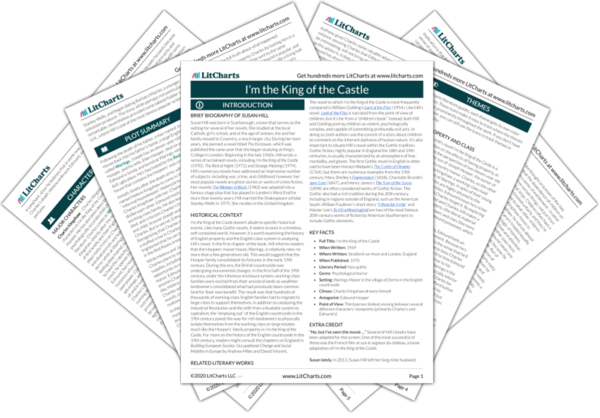Here, again, Charles seems to have the upper hand. Edmund is completely dependent on him, and knows it—that’s why he begs Charles to stay with him in the wood. However much Charles may resent Edmund, he also seems to care for him enough to look after him when he’s helpless and sick, suggesting that Charles has an innate sense of morality that Edmund simply lacks.
